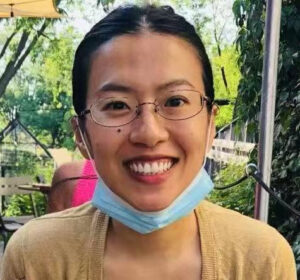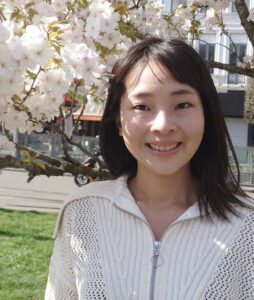POSTDOCTORAL FELLOWSHIPS
 |
Jimin Choi will receive a D. Kim Foundation Postdoctoral Fellowship for the academic year of 2025-2026. His project, “The Relocation of Psychoanalysis in South Korea: A study of Psy-Sciences in East Asia (1910-2020),” will examine the circulation of Western psychological Sciences in East Asia throughout the 20th and 21st centuries, with a special emphasis on the intellectual, scientific, and cultural adaptation of psychoanalytic knowledge in both colonial Korea (1910-1945) and postcolonial South Korea (1945-2020). He will explore how these dynamics have evolved over the 20th and 21st centuries, contributing to a broader understanding of scientific and intellectual exchanges, not only between the East and West but also among East Asian countries with shared historical and cultural legacies, such as the influence of Japanese colonization and the use of sinograms. |
 |
Shanshan Gao will receive a D. Kim Foundation Postdoctoral Fellowship for the academic year of 2025–2026. Her book project, “Opiate, Psychotropics, and Acupuncture Anaesthesia: The Chinese Communist Party’s Battlefield Medicine and its Impacts (1927–1999),” investigates a significant link between the CCP’s advocacy for the “unification of Chinese and Western medicine” during the Yan’an era (1935–1947) and the indispensable role of opium-based drugs in treating battlefield injuries and providing economic benefits. This book will examine the production and utilization of opiate preparations within CCP base areas; the exportation and distribution of opium and its derivatives from CCP base areas to the Kuomintang-controlled regions, Hong Kong, Macau, Korea, Japan, and America; and the origins, invention, development, decline, and global influence of acupuncture anesthesia. |
DISSERTATION FELLOWSHIPS
 |
Miryang Kang will receive a D. Kim Foundation Dissertation Fellowship for the academic year of 2025-2026. Her dissertation, “The Robot at the Margins of Medicine: Robotic Rehabilitation and the Contours of Disability and Ability in South Korea,” investigates how robots have changed rehabilitation practices and the conceptions of disability in South Korea by combining historical analysis of the Korean rehabilitation system since the 1960s and ethnography of robots. The transformation of medicine by robots has occurred through three processes at the epistemological, clinical, and institutional margins of medicine, which changed the definition of paralysis from a permanently fixed condition to a temporary state open to normalcy. She argues that this redefinition of paralysis in South Korean rehabilitation system has changed the basic relationship between clinics and homes (or cure and care) for disabled lives. |
 |
Aijie Shi will receive a D. Kim Foundation Dissertation Fellowship for the academic year of 2025-2026. Her dissertation, “Experimenting with Aquatic Productivity: The Life History of Fisheries Science in Cold War China (1946-1960),” examines the evolution of fisheries science, a state-led initiative that utilizes interdisciplinary knowledge from biology, chemistry, hydrology, and engineering to transform aquatic ecosystems into productive and exploitable resources for the purpose of social rehabilitation, international trade, and socialist construction. Focusing on three model projects—shark liver oil production, kelp transplantation, and reservoir-fishery construction—, she analyzes the state’s scientific engagement with various aquatic ecosystems across the domains of fishing, mariculture, and reservoir aquaculture in the Cold War period. |
 |
Narusa Yamato will receive a D. Kim Foundation Dissertation Fellowship for the academic year of 2025-2026. Her dissertation, “Milk for the Nation: A History of the Japanese Dairy Industry, 1854-1952,” explores how regionally-based dairy entrepreneurs acquired knowledge, technology, and cows from a diverse range of countries across East Asia, Europe, and the United States. By doing so, these regional businessmen—together with the state, physicians, livestock experts, and local farmers—were instrumental in advancing Japanese capitalism by linking local economics to global networks. This study also examines how the Japanese dairy industry overcame the various difficulties when this new industry started in the mid-19th century and successfully incorporated new ideas and tools throughout the period. |
